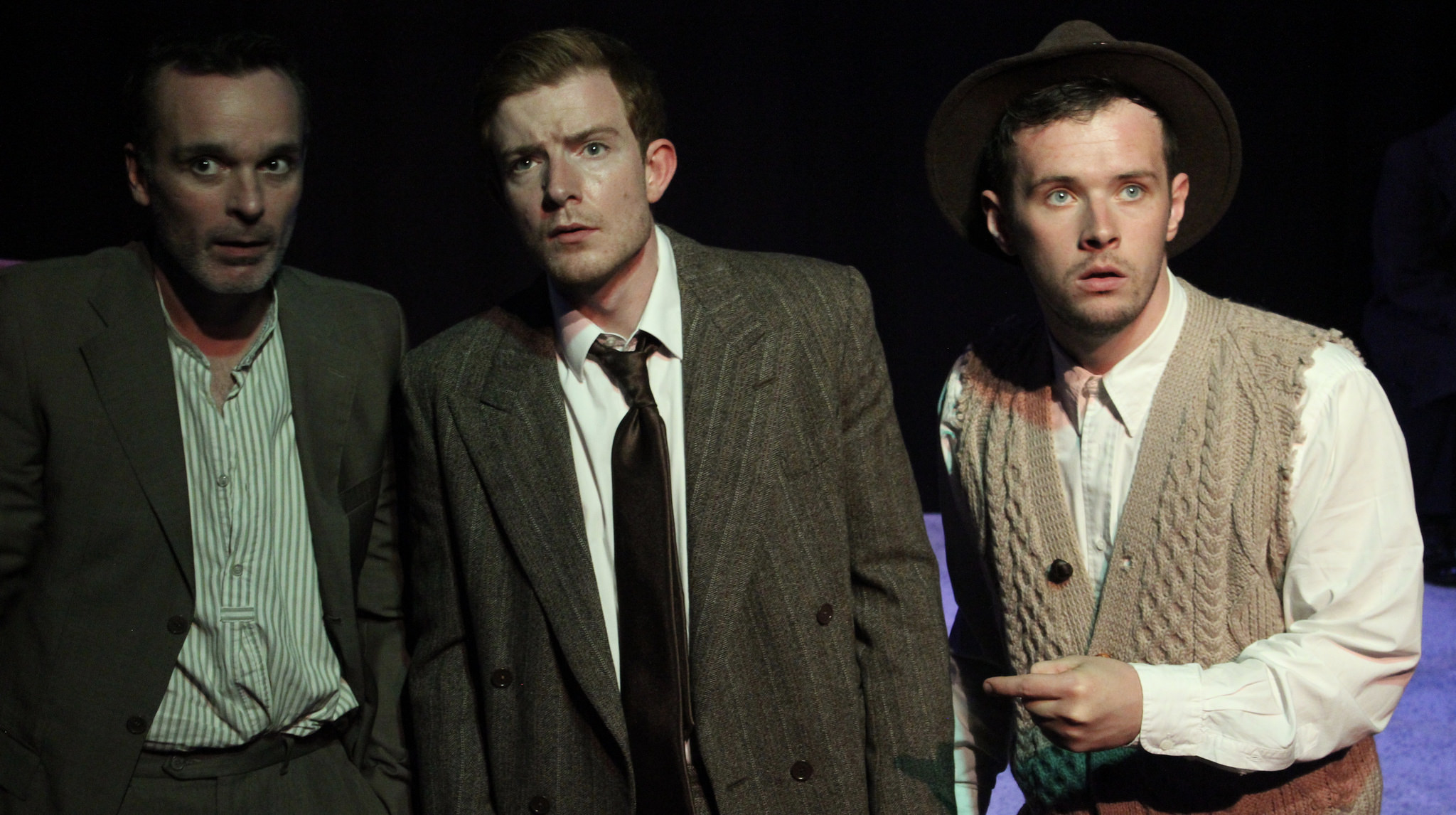The year is 1964. Maria Valente is being interrogated by a unnamed Major after being found to have restricted documents in her possession; files about the SS Arandora Star that reveal how the devastating sinking of the ship links the two individuals together. What follows is a beautifully reverent tale about prejudice, family and the human spirit in wartime.
There is nothing ostentatious about this performance. The cast is relatively small – the men playing multiple roles –, and the set is simplistic. Yet it is this unassuming nature of the production that gives Arandora Star its sincerity and poignancy.
Writer Raymond Raszkowski Ross has down well to prevent the show from being weighed down by the tragic events of the ship. The fear and uncertainty the audience share with the Italian men waiting to board the Arandora Star is eased by their playful interactions with one another. Michael Cooke‘s Giovanni and his constant sparring with Robbie Gordon‘s Enzo is hilarious, diffusing the tense atmosphere. The Italians’ humour is persistent throughout the production – be it a jibe at Scottish food or the BBC. Their light-heartedness and charm are both endearing and uplifting, which in turn counterbalances the British’s fear-mongering view of the Italians as fascist “aliens”.
This story is as much about those who were left behind as those who went onboard the SS Arandora Star. Through the frequent time jumps back to the war, we see how a once cheeky and bubbly young girl grew to be the hardened, unforgiving Maria, who is willing to give up everything in order to get the truth out. Catriona McFarlane’s sharp wit is shared with her younger self, portrayed by Andrea McKenzie. Despite the obvious age discrepancy between the actor and young Maria, McKenzie’s body language and interactions with the other characters results in a wholly convincing performance.
The Major’s rhetoric arguably goes on just a fraction too long, his blackmail becoming tiresome. It is also the sudden twist at the end – a revelation about a character who is left unseen throughout the play – that tips the scales, making the plot convoluted. Nevertheless, the slow-burning narrative between Maria and the Major is justified as it gives Ross time to do justice to the Italian-Scottish men whose lives were lost onboard the “death-trap” of a ship. As well as depicting the lead-up to the ship’s sinking, Arandora Star also sheds light on the aftermath of the disaster, and the demonisation of the men who were unable to defend themselves. As the characters separate fact from fiction, the atrocious behaviour of higher forces is exposed – making older Maria’s plight even more pertinent. While wishing to highlight parliament’s indifferent stance to the tragedy, Ross is right to focus primarily on those personally affected by the Arandora Star’s sinking. The interaction between Giovanni and Maria’s mother, played here by Isabella Jarrett, is gut-wrenching. Equally emotive is a compelling moment between the two survivors, their discussion of near-death experience being a beautifully profound scene.
Ross has created something truly remarkable for people to witness. It is perfectly balanced, both humorous and harrowing in style. There is pleasure to be taken from the writing throughout – especially his clever use of sea and ship metaphors that are thrown back and forth between Maria and the Major in their struggle to assert dominance. Arandora Star’s strive for authenticity – to educate audiences on the tragic history of the ship and the Italian-Scottish community who suffered – creates a compelling piece of drama, which will certainly have people pondering the performance long after it has finished.
